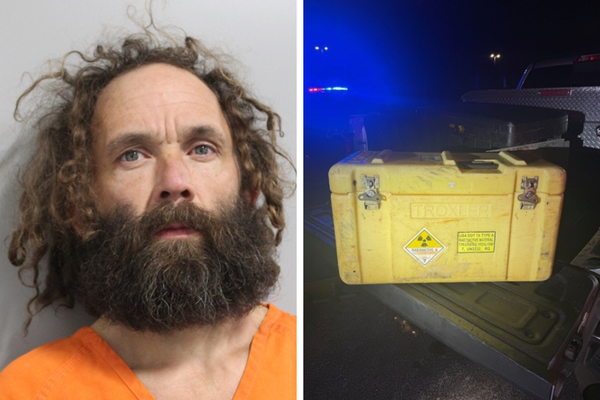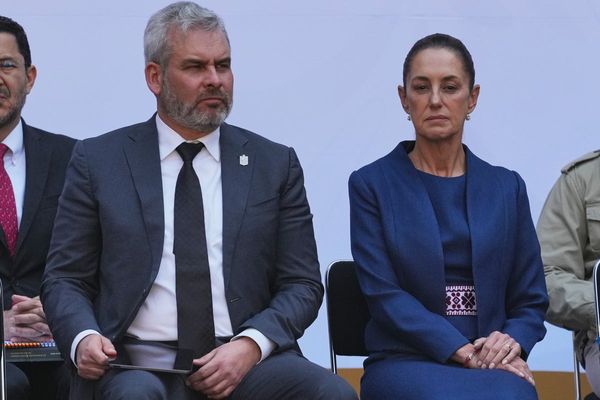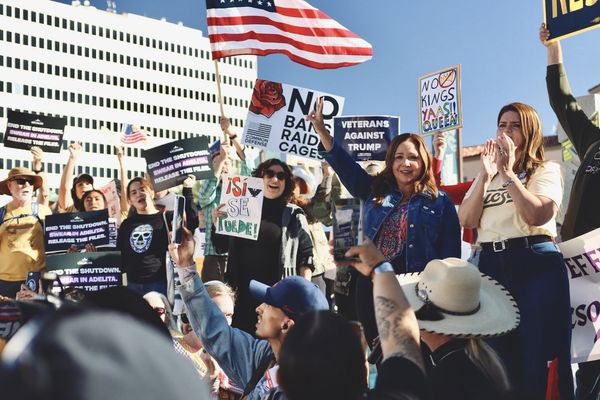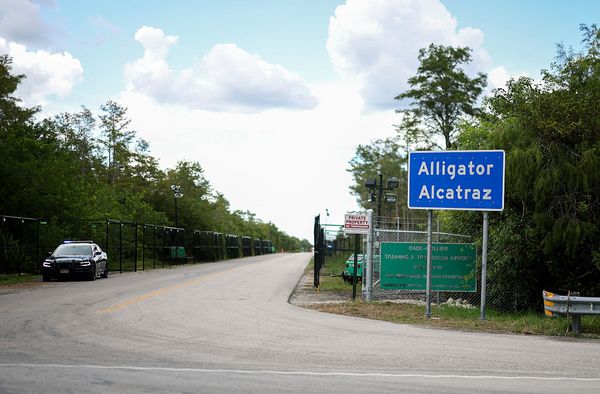Foreign Secretary David Lammy has said he is “outraged” by Israel not allowing sufficient aid to enter Gaza as he announced £15 million more for medical assistance in the region.
In a statement on the Middle East to the House of Commons on Monday, Mr Lammy told MPs that Gaza is experiencing a “man-made famine”, acknowledging the declaration from the UN-backed Integrated Food Security Classification (IPC).
He said: “I’m outraged by the Israeli government’s refusal to allow in sufficient aid.
“We need a massive, massive humanitarian response to prevent more deaths, crucial NGOs, humanitarians and health workers allowed to operate and stockpiles of aid on Gaza’s borders released.”
The Foreign Secretary pledged more money for Gazans through medical aid charity UK-Med and World Health Organisation Egypt.
He said: “I can announce an additional £15 million worth of aid in medical care for Gaza and the region.
“We continue to work alongside regional partners, including Egypt and Jordan, of course, to enable the UN and NGOs to ensure aid reaches those most in need.
“Brave medics in Gaza tell us that essential medicines are running out and they cannot operate safely, and that’s why we’re funding UK-Med, whose field hospitals treated over 600,000 Gazans, and that’s why we’re also funding the WHO Egypt to treat thousands of evacuated Gazan people.”
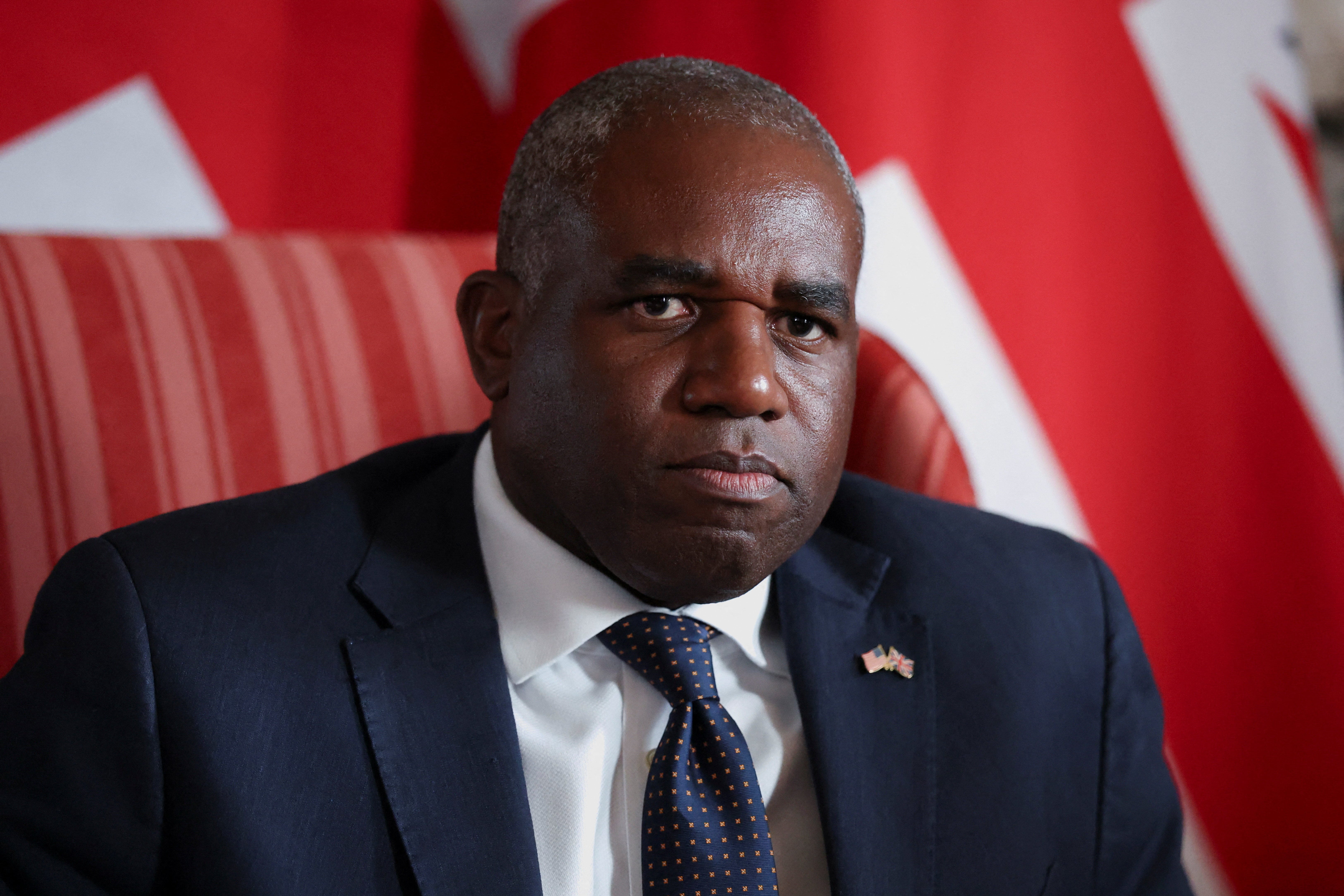
Mr Lammy reiterated the Government’s commitment to bring critically ill and injured Gazan children to the UK for specialist NHS treatment, with the first patients expected “in the coming weeks”.
He said: “We’re extracting people from a war zone, of course, it is complex and dangerous. It relies entirely on Israeli permissions, and I’m pressing the Israeli government for this to happen as quickly as possible.”
The Foreign Secretary condemned Israel for continuing to approve illegal settlements.
He said: “In the West Bank, the Israeli government is tightening its stranglehold on the Palestinian economy and continues to approve illegal settlement construction, just recently in the E1 area east of Jerusalem.
“This would erect a physical barrier to the contiguous Palestinian state, and it must not happen.”
He added: “We see no contradiction between the two-state solution and our deep commitment to Israeli security, because security comes from stable borders, not indefinite occupation.”
On the reintroduction of sanctions on Iran, Mr Lammy said: “I regret to inform the House that Iran has not complied with its legal obligations, nor chosen the path of diplomacy, so we have had no choice but to act.
“I have long been clear that I will not allow snapback to expire without a durable and comprehensive deal. It would be unacceptable to allow this issue to fall off the UN Security Council agenda, despite the threat posed by Iran’s nuclear programme.
“But snapback is not the end of diplomacy, as (US secretary of state Marco Rubio) has also recently underlined. Iran can still meet our conditions, it can restore full IAEA (International Atomic Energy Agency) access, it can address our concerns about its stockpile and enrichment, and return to negotiations.
“Alongside our partners, I will continue to urge Iran to choose this path.”

Shadow foreign secretary Priti Patel told the Commons that new solutions should be looked at for getting aid in Gaza.
She said: “The Government has yet to make essential breakthroughs on aid.
“Ministers obviously need to work around the clock with everyone, all our partners, including with the Israelis and multinational institutions, to unblock the situation by coming up with practical solutions, even new solutions that all sides can focus on when it comes to getting medical and food aid into Gaza.
“That does have to provide a significant increase in food and medical supplies to reach civilians while addressing Israeli concerns about aid diversions, because those concerns are constant.”
However, Mr Lammy disagreed that new solutions are needed, arguing that old ones like the UN’s World Food Programme have worked in the past.
The Foreign Secretary said: “She asks what new solutions might be found on aid, and that’s where I depart with the sentiment of what she’s saying, because I’m not sure we need new solutions.
“The mechanisms are there, they work all over the globe, it worked the last time when we had a ceasefire.”

